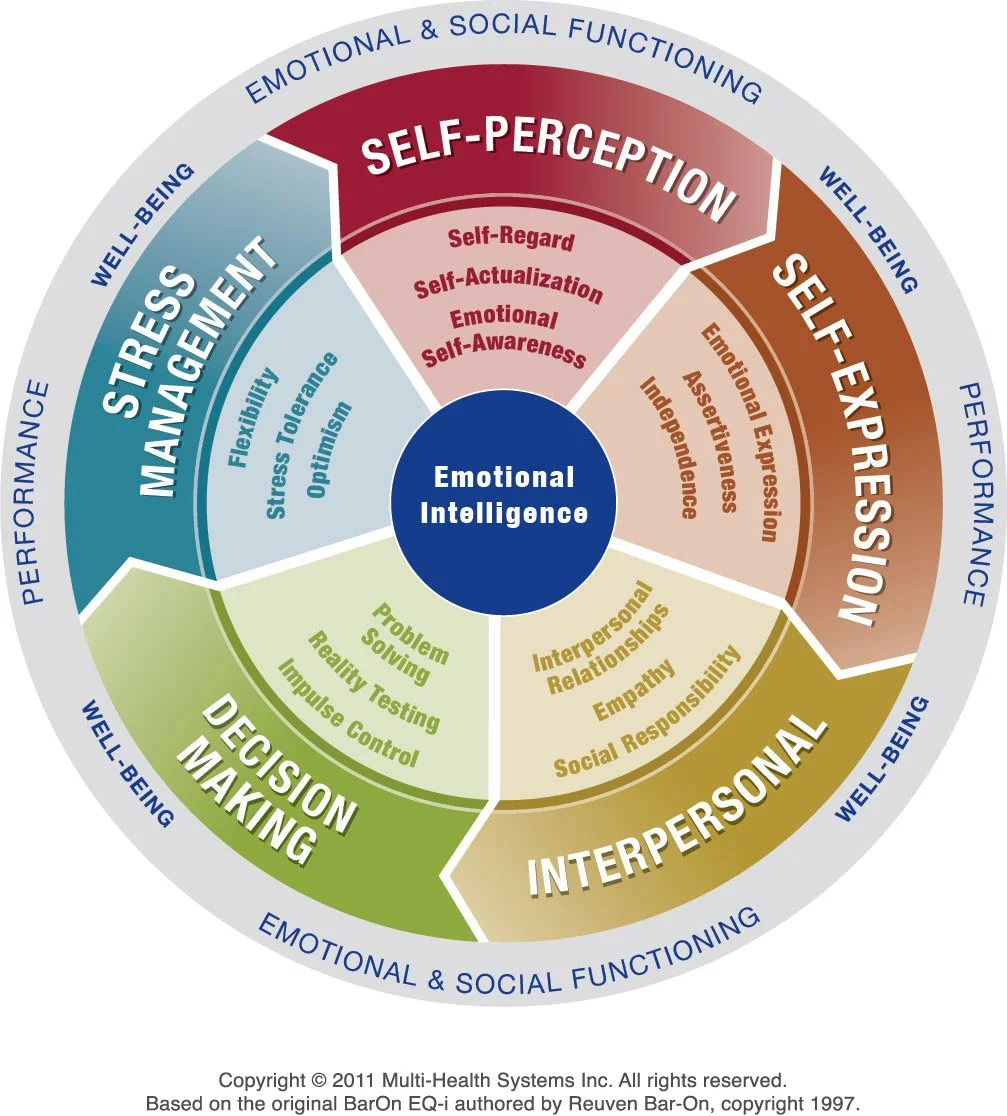What are the key emotional intelligence skills leaders need most?
Emotional intelligence (EQ) is one of the most important skill sets a leader can build, but it’s often misunderstood. It’s not just about being “nice”. It’s is your ability to recognize and understand emotions in yourself and others, and your ability to use this awareness to manage your behaviours and relationships.
At LeedHR, we use the EQ-i 2.0 model. It is a research-based framework that breaks emotional intelligence down into 15 specific and measurable skills, grouped under five core areas:
Self-Perception (how well you know and value yourself)
Self-Expression (how you communicate your emotions)
Interpersonal (how you connect with others)
Decision Making (how you use emotions to make sound choices)
Stress Management (how you cope with challenge and change)
What makes this model so powerful is that it measure individual strengths and it shows where imbalances might exist.
For example, high assertiveness with low empathy can lead to overly direct communication. Or strong emotional awareness without impulse control can lead to reactive leadership.
The goal isn’t perfection but more the balance between the competencies.
All 15 EQ competencies matter, and the “right” mix will vary depending on someone’s role, team, and environment. All are equally important for a well-rounded leader.
That said, if you’re just beginning to explore emotional intelligence in leadership, these five competencies are a great place to start with:
1. Emotional Self-Awareness
Great leadership starts with knowing yourself. Emotional self-awareness is the ability to recognize your emotions and understand how they influence your thoughts and actions. Leaders with this skill are more intentional and self-correcting. Without it, your emotions can run the show. Often without us realizing it.
2. Empathy
Empathy is about understanding how others feel. For leaders, this means tuning in to what others may be experiencing and creating a space where people feel heard and respected. Empathy builds trust and is key to leading inclusive, connected teams.
3. Impulse Control
Pressure, deadlines, and difficult conversations are part of leadership. Impulse control helps leaders pause before reacting, stay calm under stress, and lead with clarity instead of emotion. It’s a skill that builds credibility and earns respect.
4. Reality Testing
This is the ability to stay grounded and see things as they really are, not as we wish they were. Leaders strong in reality testing make better decisions by avoiding overreactions and maintaining perspective during uncertainty. It’s especially important when navigating change or solving complex problems.
5. Stress Tolerance
Leadership can be demanding. Stress tolerance is about withstanding pressure without becoming overwhelmed. Leaders with this skill remain resilient and help steady the people around them during challenging times.
While other competencies like Assertiveness, Flexibility, and Problem Solving are also valuable, these five create a strong foundation for emotionally intelligent leadership.
At LeedHR, we help leaders grow these skills using the EQ-i 2.0 model through assessments, coaching, and interactive learning experiences that go beyond theory and into real behaviour change.
Curious about how emotional intelligence could elevate leadership in your organization?
Let’s connect!


